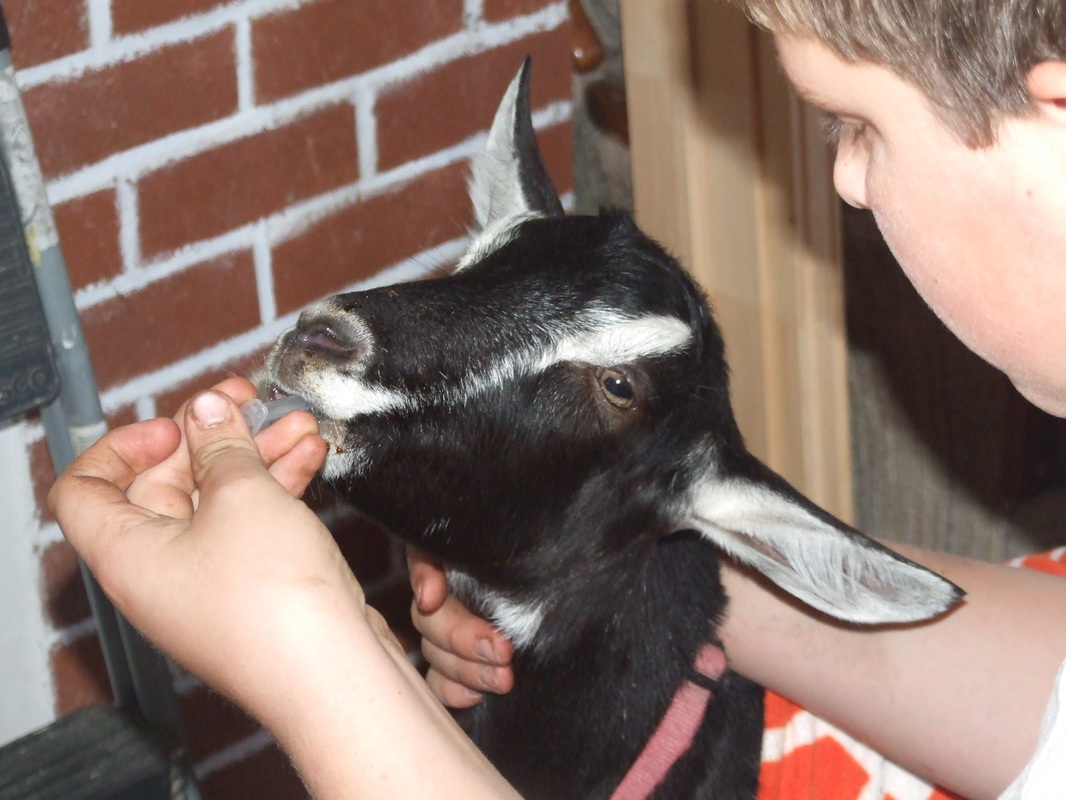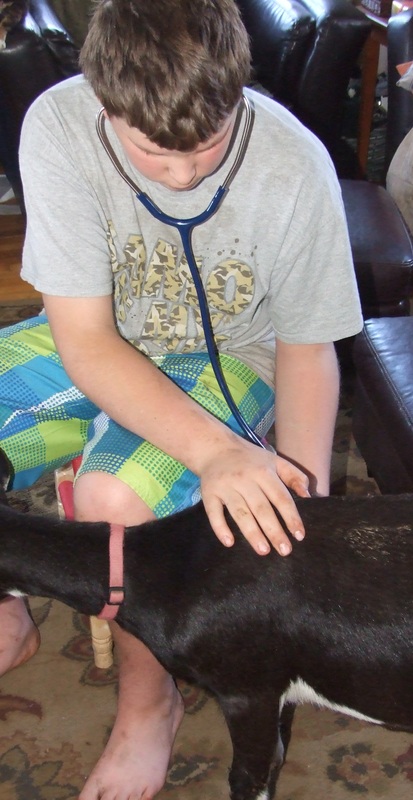Never make a cast in iron plan as a homesteader. Plans are like a poke in kidneys to mother nature, goddess of all things homesteads. This morning mother nature decided that I would not be shooting video of goat hoof trimming, instead, we have been dealing with a goat in shock with a mostly shut down rumen. As I mentioned on facebook yesterday, Miss Avril was in heat, so around four pm yesterday Reiley and I drove Miss Avril for her 'date'. By the time we arrived back home, it was pushing six pm and dark. When Avril is in heat she gets aggressive, (well let's face it she is aggressive most of the time), the best we can determine is that after we brought Avril home she either picked a fight with Pepper or Pepper was caught up in a fight between Avril and Ivan. Whatever happened, when Reiley went up to do chores this morning he found Pepper standing off in the corner in deep shock.
Goats in shock exhibit the same symptoms as most animals, even 2 legged ones. They appear dazed or blunted they also tremble or shiver and their temperature, especially in the extremities, is much lower than it should be. They also present with pale mucous membranes, the gums and inner eyelids, and rapid shallow respiration and rapid irregular pulse.
Pepper had all of these in spades this morning, my guess is that she was like this most of the night. We brought her into the house, wrapped her into her little coat that I had made her for pro-show, and set about assessing her and warming her. She has no obvious injuries, she is tender in a few spots but nothing major, she can walk and has no signs of internal bleeding. This is good, she needs supportive care. So strap on your boots it's going to be a LONG day.
Unfortunately, Pepper's rumen was very quiet, you should be able to hear a goat's rumen working even without a stethoscope. Pepper's was barely audible with a stethoscope. Once the rumen starts to shut down you need to withdraw all grain and offer only good hay and water. Unfortunately, the animals have usually stopped eating and drinking by this point. The danger comes when routinely produced bacteria in the gut become trapped in the digestive system and lead to enterotoxemia. You need to get the gut functioning again.
If the goat is refusing food and water but is not yet dehydrated, you can give fluids via a large syringe, I recommend having a few 60cc syringes on hand; you don't need a needle on it, just the syringe. Use the syringe to give water, if the goat is reluctant to take straight water, try putting little molasses in, the energy won't hurt them and it may encourage them to drink.
Pepper passed stool and urine within the first hour of being in the house, so we were not in any danger of severe dehydration yet. I should note that anytime you are not comfortable handling and treating a sick animal call your vet. Gary and I have over thirty years of experience working with animals and treating them. I trained as an RN and am very comfortable dealing with medications calculating dosages etc., but even we have our limits. We are comfortable stitching wounds, lancing abscesses, pulling babies and a host of other things but we know when we need to call a vet and everyone should recognize their limits and follow their gut instincts. The more experience you get the more comfortable you will be. It is better to acquire experience watching and talking with a good vet than by trial and error.
So, for now, she is holding her own, she is continuing to nibble hay, pass urine and stool. We will keep her in the house overnight and continue supportive care. If she is no better in the morning we will have her seen by the vet.
Ahhhhh, self-reliant homesteading at least you can't say it's boring.....
Have a great day everyone.






 RSS Feed
RSS Feed
